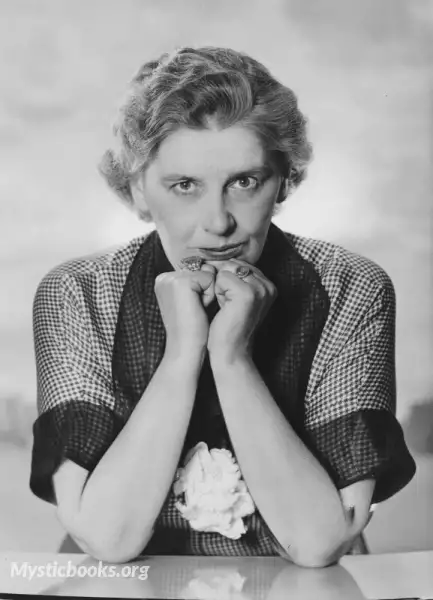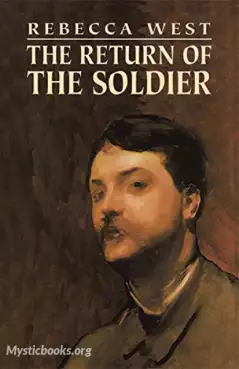
Timeline
Title
Country/Nationality
Rebecca West
Dame Cicily Isabel Fairfield known as Rebecca West, or Dame Rebecca West, was a British author, journalist, literary critic, and travel writer. An author who wrote in many genres, West reviewed books for The Times, the New York Herald Tribune, The Sunday Telegraph, and The New Republic, and she was a correspondent for The Bookman. Her major works include Black Lamb and Grey Falcon (1941), on the history and culture of Yugoslavia; A Train of Powder (1955), her coverage of the Nuremberg trials, published originally in The New Yorker; The Meaning of Treason later The New Meaning of Treason (1964), a study of the trial of the British fascist William Joyce and others; The Return of the Soldier (1918), a modernist World War I novel; and the "Aubrey trilogy" of autobiographical novels, The Fountain Overflows (1956), This Real Night (published posthumously in 1984), and Cousin Rosamund (1985). Time called her "indisputably the world's number one woman writer" in 1947. She was made CBE in 1949, and DBE in 1959 in each case, the citation reads: "writer and literary critic". She took the pseudonym "Rebecca West" from the rebellious young heroine in Rosmersholm by Henrik Ibsen. She was a recipient of the Benson Medal.
West established her reputation as a spokeswoman for feminist and socialist causes and as a critic, turning out essays and reviews for The New Republic, New York Herald Tribune, New York American, New Statesman, The Daily Telegraph, and many more newspapers and magazines. George Bernard Shaw said in 1916 that "Rebecca West could handle a pen as brilliantly as ever I could and much more savagely." During the 1920s, West began a lifelong habit of visits to the US to give lectures, meet artists, and get involved in the political scene. She was a great friend of the novelist G.B. Stern, and Stern and Clemence Dane stayed with her in America in 1924. There, she befriended CIA founder Allen Dulles, Charlie Chaplin, Harold Ross of The New Yorker, and historian Arthur Schlesinger Jr., among many other significant figures of the day. Her lifelong fascination with the United States culminated in 1948 when President Truman presented her with the Women's Press Club Award for Journalism, calling her "the world's best reporter.
"
In 1930, at the age of 37, she married a banker, Henry Maxwell Andrews, and they remained nominally together, despite one public affair just before his death in 1968. West's writing brought her considerable wealth, and, by 1940, she owned a Rolls-Royce and a grand country estate, Ibstone House, in the Chiltern Hills of southern England. During World War II, West housed Yugoslav refugees in the spare rooms of her blacked-out manor, and she used the grounds as a small dairy farm and vegetable plot, agricultural pursuits that continued long after the war had ended.
As West grew older, she turned to broader political and social issues, including Mankind's propensity to inflict violent injustice on itself. Before and during World War II, West travelled widely, collecting material for books on travel and politics. In 1936–38, she made three trips to Yugoslavia, a country she came to love, seeing it as the nexus of European history since the late Middle Ages. Her non-fiction masterpiece, Black Lamb and Grey Falcon is an amalgamation of her impressions from these trips. New York Times reviewer Katherine Woods wrote: "In two almost incredibly full-packed volumes one of the most gifted and searching of modern English novelists and critics has produced not only the magnification and intensification of the travel book form, but, one may say, its apotheosis." West was assigned by Ross' magazine to cover the Nuremberg Trials for The New Yorker, an experience she memorialized in the book A Train of Powder. In 1950, she was elected a Foreign Honorary Member of the American Academy of Arts and Sciences. She also went to South Africa in 1960 to report on apartheid in a series of articles for The Sunday Times, particularly regarding a prominent trial for a seditious uprising aiming to establish Communist rule. She accidentally misidentified a South African judge for some questions put by another judge and was sued for libel along with the Sunday Times whose editor, Harry Hodson, failed to support West. She wrote "My problem is complicated by the fact that the defence, the people who would naturally be against the Judge and for me, are mostly Communist and won’t lift a finger for me. It worries me a lot. It’s so hard to work with this hanging over me". She felt her only support was her friends, the anti-apartheid politician Bernard Friedman and his wife, with whom she stayed in Johannesburg. “I will get over this case. But it isn’t easy to feel that some people are for no reason that you know of possessed by an intention to ruin you; and I also felt I was letting you down in South Africa. I have been deeply grateful for all the kindness and sympathy you have shown me and I thought of Tall Trees as a warm place in a chilly world.”
She travelled extensively well into old age. In 1966 and 1969, she undertook two long journeys to Mexico, becoming fascinated by the indigenous culture of the country and its mestizo population. She stayed with actor Romney Brent in Mexico City and with Katherine (Kit) Wright, a long-time friend, in Cuernavaca.
Books by Rebecca West

The Return of the Soldier
In 1916 on an isolated country estate just outside London, Captain Chris Baldry, a shell-shocked captain suffering from amnesia, makes a bittersweet homecoming to the three women who have helped shape his life. Will the devoted wife he can no longer...

My Religion
This book is a collection of sixteen essays on religion by well-known people (mostly authors) in the early 20th century. The essays were originally written for the popular press of the time and cover a wide range of topics, including the existence of...